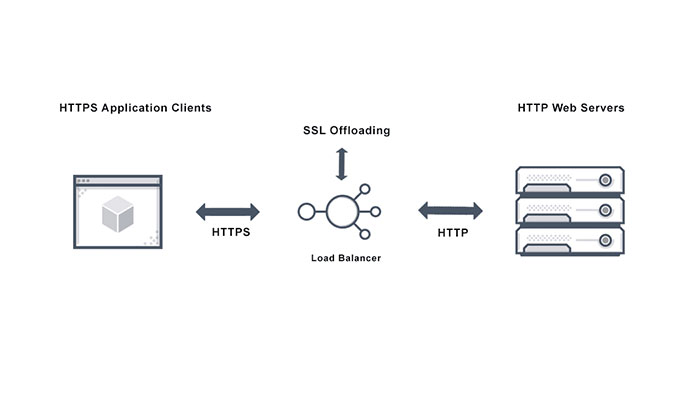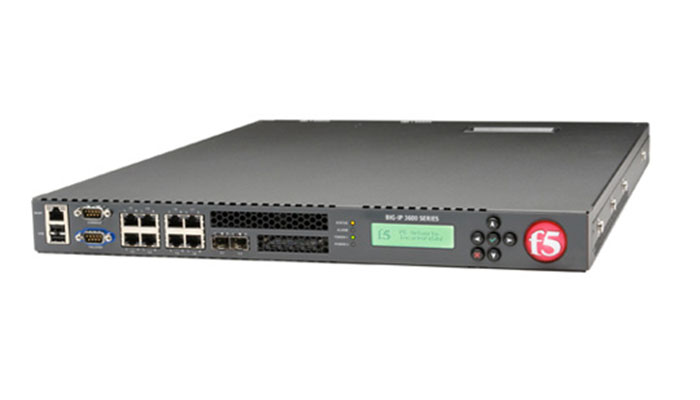What is SSL Offloading?
SSL stripping is the process of removing SSL-based encryption from incoming traffic received by a web server so that the data is not encrypted. SSL (Security Socket Layer) is a protocol that secures HTTP traffic and HTTP requests on the Internet. SSL traffic can be computationally intensive because it requires encrypting and decrypting the traffic. SSL (now called TLS or Transport Layer Security) relies on public-key cryptography to encrypt communications between clients and servers and send messages securely over the network. Encrypting confidential information protects against potential hackers and man-in-the-middle attacks.
SSL is a cryptographic process that secures communications over the Internet. SSL encryption ensures the security of user communications. SSL encryption and decryption can strain server resources. To balance the computational demands of SSL encryption and decryption of traffic sent over an SSL connection, SSL offloading moves this processing to a dedicated server. This allows the web server to manage the delivery requirements of different applications.
What happens in SSL Offloading?
When information is transmitted through the SSL security protocol, the web server encrypts or decrypts the web traffic. This process puts a significant load on the web server and affects its performance. Many networks now use SSL offloading to remove the additional burden of encrypting data on the server.
This solution involves removing SSL encryption from incoming traffic before it reaches the web server. SSL offloading handles the encryption/decryption process on individual devices so it has no impact on web server performance. The basic concept of SSL offloading is to perform cryptographic operations somewhere other than the web server. This can be a separate machine or different processing units on the same machine. Basically, SSL offloading is specially designed to do SSL acceleration or SSL termination.
How does SSL Offloading work?
SSL Offload offloads the web server that handles encryption and decryption of traffic sent over SSL. All web browsers are compatible with the SSL security protocol, which can share SSL traffic. Processing is sent to separate servers specifically designed to perform SSL acceleration or SSL termination. SSL certificates use cryptographic keys for encryption. RSA keys with increased key lengths (e.g. 1024 and 2048 bits) were the most common encryption keys a few years ago. However, more efficient ECC (Elliptic Curve Cryptography) keys with shorter key lengths are replacing RSA keys as the traffic encryption mechanism.

To configure SSL offloading, organizations can direct SSL requests to an application redirection controller that intercepts SSL traffic, decrypts the traffic, and redirects it to the web server. It is important to obtain a valid certificate and key to connect to the web server to ensure proper exchange of unencrypted traffic during SSL downloads.
What is SSL offloading in load balancing?
SSL offloading is now a mandatory feature of load balancers and these load balancers like F5 Big-IP series are also called SSL load balancers. A load balancer that can encrypt and decrypt data sent over HTTPS using SSL to protect data on the network.
SSL offloading can significantly improve the performance of secure web servers and improve the customer experience. However, capture means that the SSL connection only scales from the client to the load balancer, not from the client to the server. Encryption often requires a lot of computer processing. This could be the bottleneck of the web server you are already using. But what if you could separate the intensive encryption processing from the heavy workload of sending and receiving web page traffic? This is the main purpose of SSL downloads.
F5 Big-IP an SSL Offloading solution
F5 Big-IP is a device that acts as a reverse proxy that distributes network or application traffic across multiple servers. Load balancers like F5 Big-IP are used to increase application capacity (concurrent users) and reliability. Improves overall application performance by offloading servers and performing application-related tasks related to managing and maintaining applications and network sessions.
Load balancers are generally grouped into two categories: layer 4 and layer 7. Layer 4 load balancers work with data found in network and transport layer protocols (IP, TCP, FTP, UDP). A Layer 7 load balancer distributes requests based on data found by application layer protocols such as HTTP.
Does F5 Big-IP series offer SSL downloads?
The licensed F5 Big-IP series offers SSL downloads of encrypted traffic using RSA 2K keys and ECC keys. This licensed solution also offers high performance for SSL downloads, as well as several enterprise-class features for understanding the health of SSL traffic, including error version warnings and SSL-related troubleshooting.
Key benefits of using F5 Big-IP series
- This licensed solution handles the SSL handshake, which includes both encryption and decryption, two major operations that consume a web application’s computing power.
- The F5 Big-IP series completes the SSL handshake faster than the web server. The result is smoother site loading and faster request processing at the web application end.
- It also includes HTTPS validation, reverse proxy, traffic monitoring, cookie persistence, and more. This may help. It depends on the SSL load balancer you have installed.
- HTTPS validation is another important point of use for SSL load balancers. We understand how important encryption is, but it’s a double-edged sword. Attackers can hide and encrypt malicious code.



